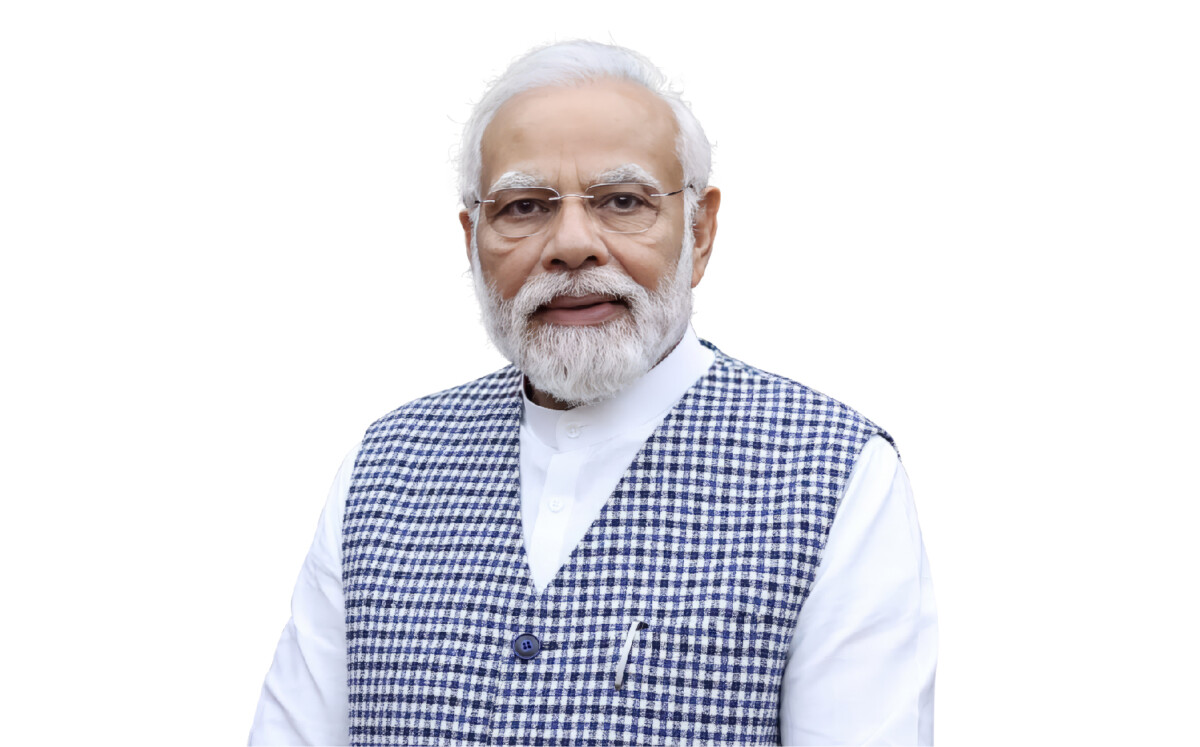(Image courtesy – PM India)
As the political landscape in India evolves, the upcoming 2024 general elections have sparked intense debate and speculation regarding the country’s leadership. At the forefront of this discussion is the incumbent Prime Minister, Narendra Modi, whose leadership has left an indelible mark on India’s socio-political landscape. Despite facing challenges and criticisms, there remains a significant groundswell of support for Modi’s re-election. This article delves into the reasons why a considerable segment of Indian society favors Narendra Modi for another term as Prime Minister.
- Economic Reforms and Development Initiatives: Narendra Modi’s tenure as Prime Minister has been characterized by an emphasis on economic reforms and development initiatives. His government’s flagship programs such as “Make in India,” “Digital India,” and “Skill India” have aimed at fostering economic growth, job creation, and technological advancement. Under Modi’s leadership, India has witnessed significant infrastructure development, including the construction of roads, highways, and urban rejuvenation projects.
The implementation of goods and services tax (GST) aimed to streamline India’s complex tax system, while initiatives like demonetization targeted corruption and black money. While these policies have drawn both praise and criticism, many Indians perceive Modi as a leader committed to catalyzing India’s economic progress and positioning the country as a global economic powerhouse.

(Image courtesy – Deccan Chronicle)
- National Security and Foreign Policy: Modi’s tenure has seen a proactive approach towards national security and a recalibration of India’s foreign policy. The government’s assertive stance in dealing with security threats, particularly in addressing cross-border terrorism, has resonated with many citizens concerned about India’s safety and sovereignty.
Modi’s diplomatic efforts have sought to strengthen India’s ties with major global powers while also bolstering regional partnerships. Initiatives like the “Act East Policy” and “Neighborhood First” have underscored India’s commitment to fostering regional stability and economic cooperation. Additionally, Modi’s resolve in safeguarding India’s interests on the international stage, whether in matters of trade, climate change, or defense, has garnered widespread approval among Indian citizens.

(Image courtesy – Business standard)
- Welfare Schemes and Social Initiatives: The Modi government’s extensive array of welfare schemes and social initiatives have aimed at uplifting marginalized sections of society and addressing socio-economic disparities. Programs such as “Pradhan Mantri Jan Dhan Yojana,” “Pradhan Mantri Ujjwala Yojana,” and “Ayushman Bharat” have targeted financial inclusion, clean energy access, and healthcare accessibility, respectively.
The successful implementation of these schemes has directly impacted millions of lives, especially those belonging to disadvantaged communities. Modi’s focus on social empowerment and inclusive development has resonated with voters across various strata of society, enhancing his popularity among those who have directly benefited from these initiatives.

(Image courtesy – India Today)
- Charismatic Leadership and Strong Governance: Narendra Modi’s leadership style is characterized by charisma, decisiveness, and a strong administrative acumen. His ability to connect with the masses through effective communication and mass mobilization has contributed significantly to his political appeal. Modi’s image as a decisive leader capable of taking bold and unconventional measures, evident in initiatives like demonetization and surgical strikes, has garnered admiration from supporters who value strong and decisive governance.
Furthermore, Modi’s personal journey, from humble beginnings to the country’s top political office, resonates with many Indians, symbolizing aspirational possibilities and social mobility. His reputation as a tireless worker and his hands-on approach to governance have instilled confidence among supporters regarding his ability to navigate complex challenges and lead India towards a brighter future.

(Image courtesy – LiveLaw)
- Ideological Alignment and Political Stability: For a significant segment of the Indian electorate, Narendra Modi represents a political ideology and worldview that aligns with their values and aspirations. The Bharatiya Janata Party (BJP), under Modi’s leadership, espouses a blend of nationalist, conservative, and pro-Hindu ideologies, which resonates with a considerable portion of the electorate.
Moreover, Modi’s track record of delivering electoral victories for the BJP, both at the national and state levels, underscores his political acumen and the party’s organizational strength. The stability provided by a strong and decisive leadership, coupled with a cohesive political agenda, appeals to voters seeking continuity and predictability in governance.

(Image source – Firstpost)
As India approaches the 2024 general elections, the prospect of Narendra Modi securing another term as Prime Minister looms large on the country’s political horizon. Despite facing criticism and challenges, Modi’s leadership continues to enjoy significant support from diverse segments of Indian society. From economic reforms to national security, welfare schemes to charismatic leadership, the reasons behind India’s preference for Modi’s re-election are multifaceted and reflective of the complex socio-political dynamics at play in the world’s largest democracy. Whether Modi will indeed secure another mandate remains to be seen, but his enduring popularity underscores his status as a formidable political force shaping India’s future trajectory.

